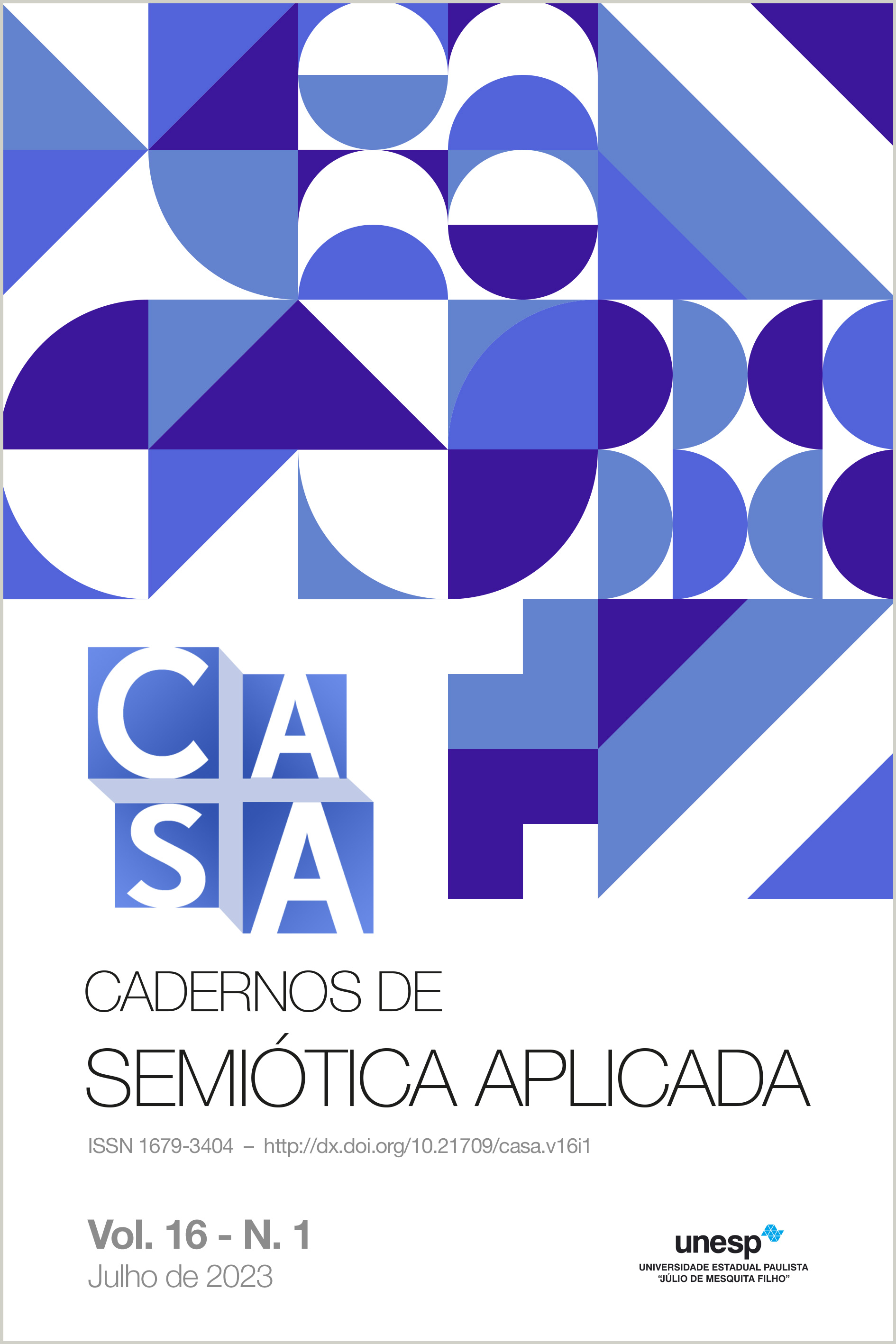SEMIÓTICA PLÁSTICA E INFORMAÇÃO PRESSUPOSTA
PLASTIC SEMIOTICS AND PRESUMED INFORMATION
DOI:
https://doi.org/10.21709/casa.v16i1.17751Keywords:
Plastic semiotics, Jean-Marie Floch, Syncretic TextAbstract
The present work aims to highlight the manifestation of meaning in a syncretic text, understood in the light of French semiotics. Specifically, we aim to analyze presupposed information and thus show how our object of analysis is configured as a unit of meaning. Moreover, we intend to demonstrate what a text says and how it does it to say its content. Our object of analysis is an image published, in the year 2022, on an open profile on the social network Instagram. The central work methodology used is that of plastic semiotics, as formulated by researcher Jean-Marie Floch. After applying the concepts of visual semiotics to our object of study, we were able to confirm our hypothesis that the presupposed content of the analyzed image does indeed manifest a specific ideology that, in the context of its publication/manifestation. This ideology has the function of inducing the enunciatee-user of the social network Instagram who had contact with the image to have a determined choice. The semiotic methodology made it possible to both highlight and show the role and function of the ideology assumed in the text under analysis.
Downloads
Published
Issue
Section
License
Copyright (c) 2023 CASA: Cadernos de Semiótica Aplicada

This work is licensed under a Creative Commons Attribution-NonCommercial-NoDerivatives 4.0 International License.
The authors of the approved papers agree to grant non-exclusive publication rights to CASA. Thus, authors are free to make their texts available in other media, provided that they mention that the texts were first published in CASA: Cadernos de Semiótica Aplicada. Besides, they authorize the Journal to reproduce their submission in indexers, repositories, and such. Authors are not allowed to publish the translation of the published paper to another language without the written approval of the Executive Editors. The authors are totally responsible for the content of the published work.

